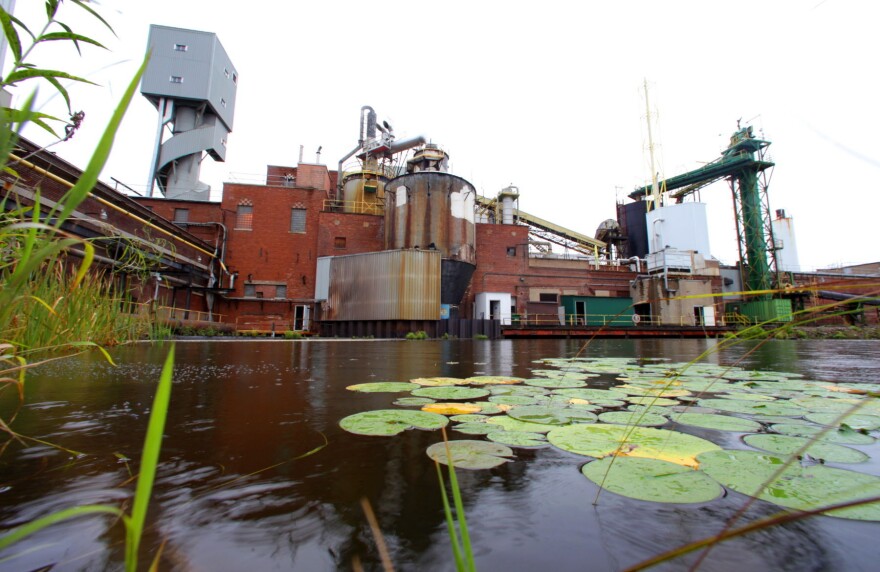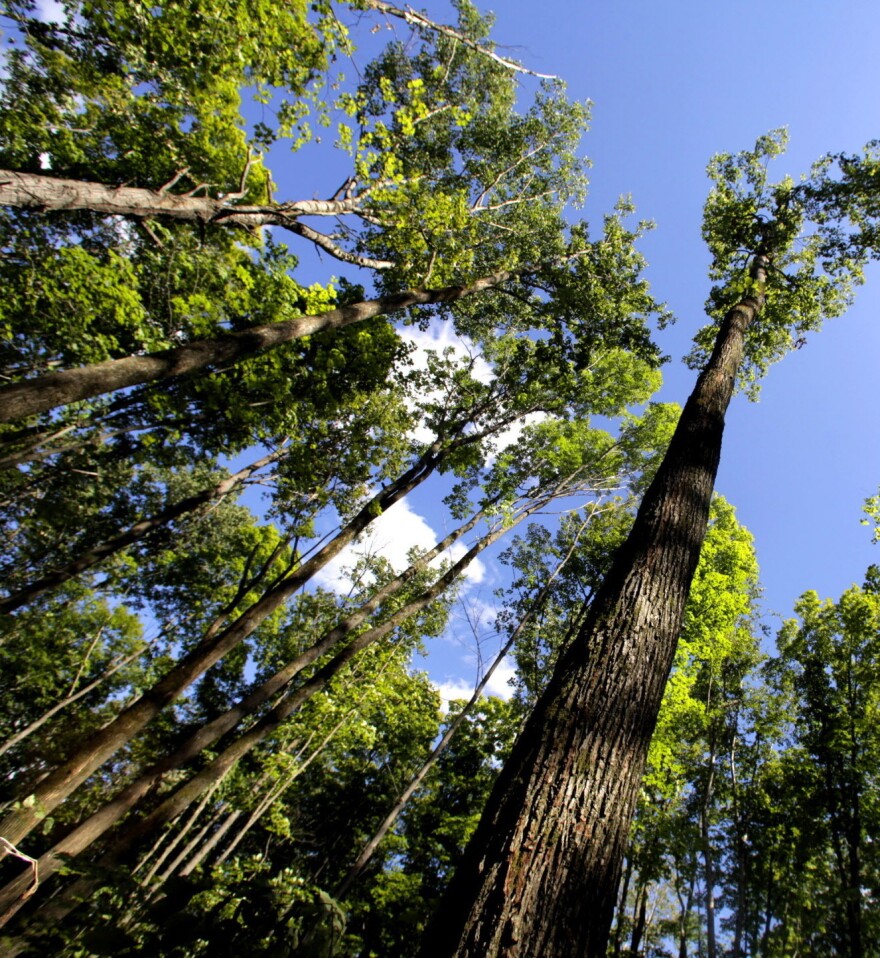
Deep in the Northwoods of Wisconsin, lumberjacks still cry "timber," just not as often as they once did. Across the state, milling lumber into good paper, the kind called "knowledge" grade for books, has employed thousands for more than a century, and created a distinct culture.
Then about six years ago, the mills started closing as a result of the twin threat of the iPad and China. Still, some hearty souls are surviving through grit and attitude.
Paper Cuts is the name of a series done last month by the Milwaukee Journal Sentinel with support from the Pulitzer Center on Crisis Reporting. Reporter John Schmid spoke with Jacki Lyden, host of weekends on All Things Considered, about his findings.
Interview Highlights
On the history of papermaking in Wisconsin
"There is a town called Hayward, Wis., where you can still go for the annual August international lumberjack competition. The entire reason that Wisconsin became the nation's leading papermaking state is because it's got the natural resources that you need for making paper. It's got a lot of rivers, which you need to power the mills. In a town called Appleton ... they made the world's first operating hydroelectric dam to power the paper mills. And you've got hardwood forests, which have been a blessing for the industry in northern Wisconsin. ... These yield these fine, tough fibers that are great for books, magazines, encyclopedias. That's what Wisconsin specialized in for over 100 years."
On paper surviving the beginning of the digital age
"A joke began to circulate in Wisconsin: 'This paperless society sure is good for business.' Amazing, astonishingly, the paper industry demand held up right around 2005, 2006. There is a beautiful old, 120-year-old mill on the Wisconsin River in a town called Nekoosa. It has to work extra shifts to make the paper for the recent biography of Steve Jobs by Walter Isaacson. The irony, of course, is that no industrialist has done more than Steve Jobs to create the touch screens that are putting the pressure on these paper mills."
On one surviving mill owner, Butch Johnson
"Butch Johnson is a second-generation logger, dyed in the wool, northern Wisconsinite. He is from the town called Hayward. ... One of the first questions we asked was, 'Have any of these mills that have closed down reopened?' There was just one. That's in Park Falls. Butch grew up there. It is the biggest employer in all the county. ... He saved the town. As soon as the mill closed down and the pink slips went out, the anecdotes that I had heard was that just about every other house on some blocks had put up a 'for sale' sign, and you could just see the town economy begin to collapse.
"Banks didn't want to extend loans to Butch. ... So he scrapped together a fairly complicated deal. It did involve some state subsidies from the state of Wisconsin, and he had the mill back up and running within a couple of months of closing. Butch will be the first to admit that they might be the next mill to close."
On following the paper trail to China
"No one expected them to dominate the industry that's just not sexy — an industry that is so 18th century. What China has had for so many decades were these quaint, old, highly polluting mills that made flimsy paper out of things like straw and reeds and bamboo. It began to strategically nurture a paper industry. In China, in the classroom, they learn about the four great inventions: They included paper, printer. ... It is a potent national symbol, and China felt like it was claiming an industry that belonged to China in the first place."
On Chinese paper subsidies
"It's not just subsidies that the Chinese have used as a competitive advantage. They are an innovation economy. They have had to compensate for a chronic timber deficit. They are crossbreeding and hybridizing and cloning species of trees that can grow to full height in four to six years. ... I think the greatest innovation that the Chinese have come up with, however, is that they have created the biggest and most efficient recycling scheme in the world. They scour the planet, literally, for recycled paper, which they then de-ink and re-pulp. The biggest supplier is the United States of America. Not only is Wisconsin losing an industry, but for all of its economic might, the biggest U.S. export is junk that we throw away."
Copyright 2020 NPR. To see more, visit https://www.npr.org. 9(MDA4MzM1MjM1MDEzMTg5NTk0MzNmOTQ5MA004))


